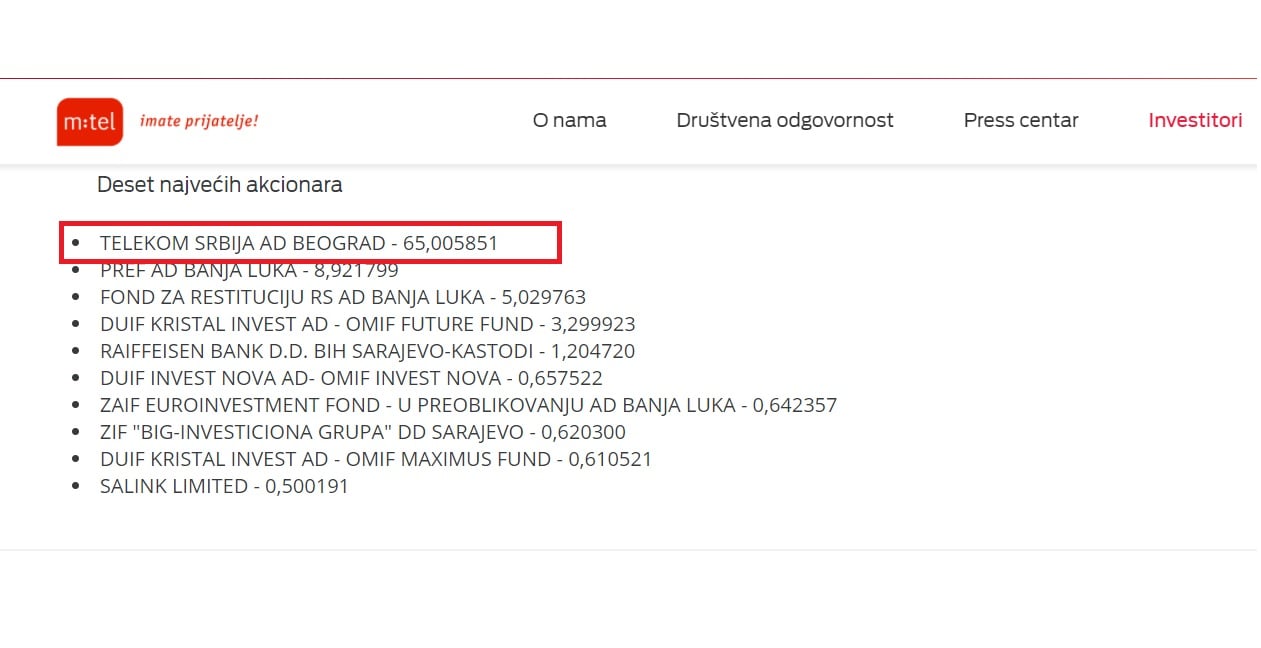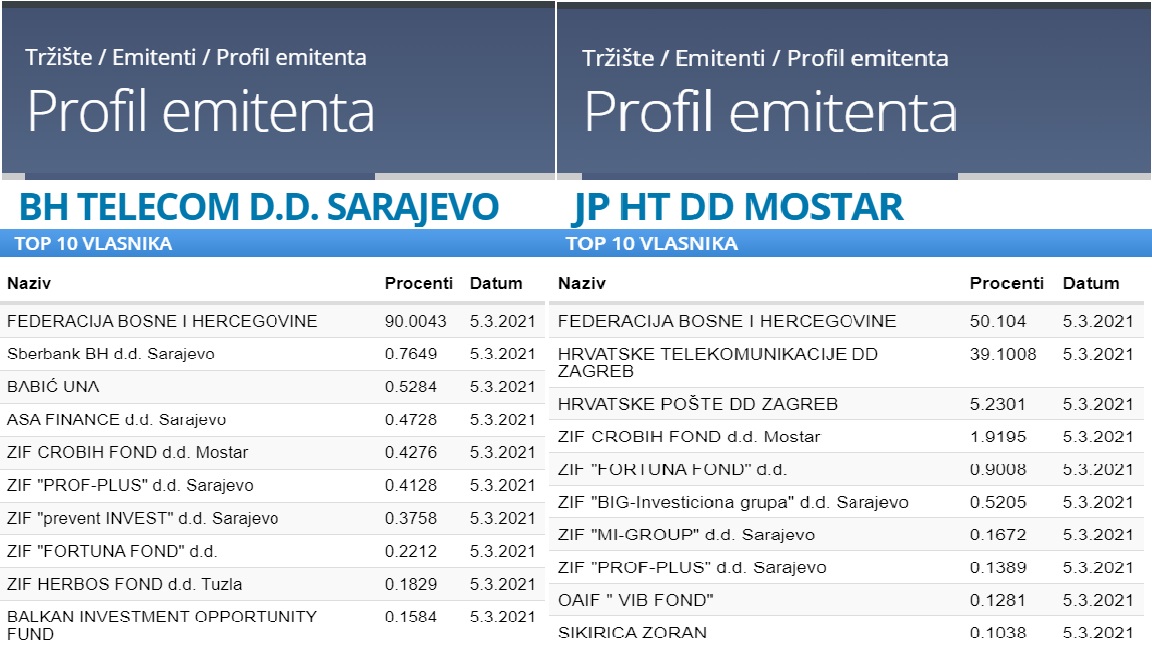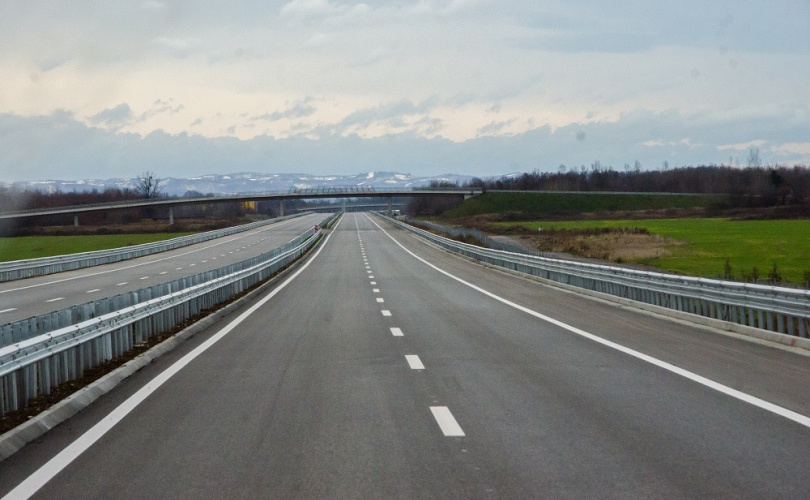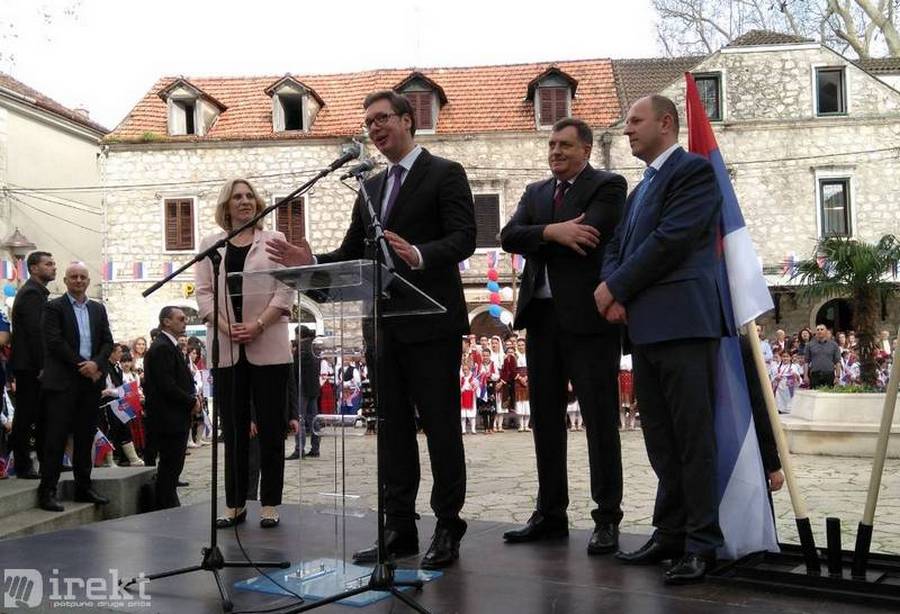Žurnal in English
INVESTMENT IN CRITICAL INFRASTRUCTURE: State loses control over telecommunications and internet
The privatization of communication and information resources can put the state in an extremely disadvantageous position. Control thereof can also be used to disseminate disinformation, spread panic, fear, endanger human rights...

Žurnal has so far written in detail about foreign investments in energy in Bosnia and Herzegovina (oil, gas, electricity, mines…), and in this analysis we will look at the remaining sectors of critical infrastructure to which foreign investments are linked.
Critical infrastructure is necessary to maintain key social functions – health, safety, security, economic or social well-being, and its sectors are: energy, communication and information technology, transport, health, water management, food, finance, hazardous materials management, public services, national monuments and values.
TELECOMMUNICATIONS AND INTERNET OUTSIDE THE SCOPE OF STATE CONTROL
Although there are opposing opinions about this sector, the privatization of communication and information resources can put the state in an extremely disadvantageous position. Most importantly, it can jeopardize the security of various state resources, and thus also the security of all of its citizens. Furthermore, it should not be forgotten that the control over telecommunications, networks and the Internet in a country can be used to disseminate disinformation, spread panic, fear, endanger human rights ...
In the context of Bosnia and Herzegovina, when it comes to communication and information resources, we can say that at least 1/3 has been sold, and the other 2/3 are under such political control of the ruling parties with a high probability that they will be sold in the future.
Telekom Serbia has been majority owner of Telekom Republika Srpska since 2007 and it was one of the largest individual foreign investments in Bosnia and Herzegovina in the amount of approximately 1.2 billion KM. After the change of ownership structure, Telekom RS was renamed Mtel a.d. and an aggressive campaign to eliminate market competition was launched, which was realized by buying all rival companies operating in the territory of Republika Srpska: Telrad Net, Blicnet and Elta Kabel. In short, all communication infrastructure in RS is owned and controlled by Mtel, majority owned by a company from Serbia.

The remaining two large telecom operators in BiH are joint stock companies (d.d.) that are majority owned by the Federation of Bosnia and Herzegovina. These are: BH Telekom (more than 90% ownership) and HT Eronet (more than 50% ownership). An analysis of the ownership structure of BH Telecom, which is available on the Sarajevo Stock Exchange (SASE), shows that the second largest shareholder is the Sarajevo branch of the Russian Sber Bank (approximately 0.76% ownership), while more significant shareholders of HT Eronet are Hrvatske Telekomunikacije dd Zagreb (approx. 39.1% ownership) and Hrvatska Pošta d.d. Zagreb (approx. 5.23% ownership). Involvement of politics in the operations of these companies may inevitably lead to their future sale, which will result in the state having absolutely no control over telecommunications, the Internet and other communication and information resources on its territory.

FINANCIAL ENSLAVEMENT
The transport infrastructure in Bosnia and Herzegovina, whether we are talking about road, rail, air or maritime infrastructure, is either outdated or damaged. Very little is invested in the modernization and reconstruction of the transport infrastructure, and everything invested is either embezzled or done poorly due to systemic corruption.
When it comes to road transport, the construction of new highways and roads in BiH is to a lesser extent realized from the budget, and to a greater extent from the loans. So far there has been no full implementation of direct foreign investments in road transport despite numerous announcements, and the reasons for that are numerous. China, Turkey and Serbia stand out as key foreign investors in this area.
The most important project that the Chinese are interested in is the construction of Banja Luka - Prijedor highway. As published by Capital Portal at that time, the Chinese company SDHS-CSI BH had on December 13, 2018 signed a Concession Agreement with the Government of Republika Srpska. Many secrets and suspicious deals hidden behind this project were revealed, starting with the fact that that a company with one KM capital will build the highway, to information that all tolls collected in Republika Srpska will go to Chinese, and that Chinese will invest around 300 million Euro in this highway and collect around 900 million Euro. The latest problems that have arisen in connection with this project relate to the determination of the route and the expropriation of land.
Namely, on February 8, 2021 residents of Kozarac settlement near Prijedor peacefully protested against the planned route of Banja Luka-Prijedor highway demanding its relocation. The residents of Verići village near Banja Luka had on March 6, 2021 protested for the same reason.

In addition to the listed big and small problems related to this project, Republika Srpska, and thus Bosnia and Herzegovina, could fall into a very serious financial trap characteristic of countries that conclude credit and investment deals with China, and that is the so-called “financial slavery”. If the debt cannot be repaid, the Chinese will be entitled to their share of the territory / land, and any arbitration will be conducted under the Chinese law. Real examples of this problem are Sri Lanka and Montenegro, about which Financial Times wrote. Sri Lanka, under the pressure of debt slavery caused by credit and investment deals with China, was forced to officially lease its southern port Hambantotu to China for the next 99 years. Montenegro is in big trouble due to the unfavorable contract for the construction of Bar - Boljare highway because the country’s debt has risen from 63% of GDP to almost 80% of GDP after this contract, and now there are reports that Serbia will buy this debt and become owner of the highway.
The key project in which Turkey sees its political and economic interest is the construction of the Sarajevo-Belgrade-Sarajevo highway. Political interest can be placed in the context of better connections with the European Union, given that most of its members dispute Turkey’s membership in the EU, and strengthening its influence in the Balkans will contribute to “more favorable winds” in the context of membership. However, Turkey’s economic interest in this project is much more important because it is known that Turkey is among the largest investors in Serbia and it is logical that it intends to expand to Bosnia and Herzegovina. Of course, we should not ignore the fact that construction companies from Turkey, as contractors on Corridor Vc, are not recognizable by the quality of construction, about what Žurnal recently wrote.
VUČIĆ’S PROMISE
The beginning of the project for the construction of Sarajevo-Belgrade-Sarajevo highway was made official on October 9, 2019 when Turkish President Recep Tayyip Erdogan, Serbian President Aleksandar Vučić and members of the Presidency of Bosnia and Herzegovina Željko Komšić, Milorad Dodik and Šefik Džaferović laid the foundation stone in Sremska Rača. Financing and implementation of activities on the territory of Serbia is completed, one part is financed from the budget of Serbia, and the other part are loans from Turkish commercial banks, while nothing has been finalized in BiH yet. Due to the complex socio-political relations, a discussion on determining the route of the highway was held for the first two years in BiH, and when the route was finally determined, it remained to define the financial aspects of this regional project. Given that the signing of Agreement on Cooperation in Infrastructure and Construction Projects between Turkey and Bosnia and Herzegovina has been announced for March 16 this year, we hope that the public will know more information about the project financing and implementation plan of this project.
Serbia, which is forcing itself as a regional leader, is firmly holding its investments in BiH’s transport infrastructure on the political ground. Almost as a rule, Serbian President Aleksandar Vučić appears with new promises to invest in Republika Srpska during the election years, thus being wind beneath political wings of Milorad Dodik and his ruling SNSD.
One of the examples for this is Vučić’s promise he gave on April 10, 2018 during his visit to Trebinje regarding the construction of Foča - Tjentište main road. Today, almost 3 years after, there is not much information on if and when this project will be realized. Also, during the 2020 election year, the President of Serbia, Aleksandar Vučić, went public with the information that Serbia will build an airport in East Herzegovina without giving any precise indicators on the location and financial justification of the project. Of course, to date, apart from media spins, no concrete steps have been taken on the realization of this project.

(Cvijanović, Vučić, Dodik and Petrović in Trebinje / Photo by: direkt portal)
It is difficult to single out any of the foreign investments in other sectors of critical infrastructure in BiH, but it should be noted that they are most often realized through various forms of donations or loans. Based on all the above, apart from the statement that investments in critical infrastructure are certainly necessary because it is an area necessary for the functioning of society and the state, one can concluded that in addition to borrowing and meeting the political and financial interests of investors, Bosnia and Herzegovina must find other modalities for improvement of this sector.
.png)
(zurnal.info)




